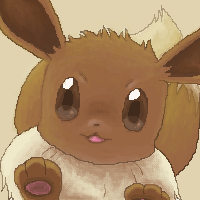Forum Links
Related Threads
Coming Soon
Thread Information
Thread Actions
Order
Learning Japanese
04-14-25 09:29 AM
 tgags123 is Offline
| ID: 1412583 | 264 Words
tgags123 is Offline
| ID: 1412583 | 264 Words
 tgags123 is Offline
tgags123 is Offline
| ID: 1412583 | 264 Words
tgags123
Davideo123
Davideo123
Level: 174





POSTS: 9347/10191
POST EXP: 630066
LVL EXP: 69896634
CP: 41871.1
VIZ: 5908756

POSTS: 9347/10191
POST EXP: 630066
LVL EXP: 69896634
CP: 41871.1
VIZ: 5908756

Likes: 0 Dislikes: 0
I've been trying to learn some Japanese so that I am able to communicate during my upcoming trip to Japan. I haven't spent any time at all learning hiragana, katakana, or kanji. I've only been learning the romanji for each word, since I will only need to worry about listening and speaking, not reading. For Japanese text I can use Google Lens to translate it instantly (hooray for modern technology). I'm struggling a bit with grammar and sentence structure. I know a decent amount of words, but I don't really understand how to put them into coherent sentences. I know the general order is subject, object, verb, but what about other parts of speech? What about particles? When do I use them and which ones do I use? Ultimately, most of the "sentences" I speak are probably going to be one-word sentences. And when I'm trying to understand what someone is saying to me, I'll definitely be listening for certain key words and using context clues to guess at what they are actually asking or telling me. But that's ok. The goal is just to be able to communicate. What I've found pretty funny about Japanese is that a pretty significant number of Japanese words are just English words with a Japanese accent. Some examples: calendar = karenda manager = maneja beer = biru wine = wain passport = pasopoto engineer = enjinia hotel = hoteru restaurant = resutoran coffee shop = kohi shoppu dessert = dezzato If anyone knows any Japanese and has tips they want to share I would definitely appreciate it! I'm struggling a bit with grammar and sentence structure. I know a decent amount of words, but I don't really understand how to put them into coherent sentences. I know the general order is subject, object, verb, but what about other parts of speech? What about particles? When do I use them and which ones do I use? Ultimately, most of the "sentences" I speak are probably going to be one-word sentences. And when I'm trying to understand what someone is saying to me, I'll definitely be listening for certain key words and using context clues to guess at what they are actually asking or telling me. But that's ok. The goal is just to be able to communicate. What I've found pretty funny about Japanese is that a pretty significant number of Japanese words are just English words with a Japanese accent. Some examples: calendar = karenda manager = maneja beer = biru wine = wain passport = pasopoto engineer = enjinia hotel = hoteru restaurant = resutoran coffee shop = kohi shoppu dessert = dezzato If anyone knows any Japanese and has tips they want to share I would definitely appreciate it! |
Administrator
Affected by 'Laziness Syndrome'
Registered: 04-26-13
Location: Florida
Last Post: 8 days
Last Active: 18 hours
| 2x Tour de Vizzed Champion |
Affected by 'Laziness Syndrome'
Registered: 04-26-13
Location: Florida
Last Post: 8 days
Last Active: 18 hours
04-14-25 01:06 PM
 Dauntez is Offline
| ID: 1412613 | 170 Words
Dauntez is Offline
| ID: 1412613 | 170 Words
 Dauntez is Offline
Dauntez is Offline
| ID: 1412613 | 170 Words
Dauntez
Level: 76





POSTS: 1719/2239
POST EXP: 108372
LVL EXP: 3902735
CP: 5251.9
VIZ: 586752

POSTS: 1719/2239
POST EXP: 108372
LVL EXP: 3902735
CP: 5251.9
VIZ: 586752

Likes: 0 Dislikes: 0
I was learning some Japanese, just for fun, I never made it very far, but one of the things I use to help me learn was ChatGPT, and Duolingo, I was able to learn quite a few words: Ocha = Green Tea Kudasai = Please Gohan = Rice Mizu = Water Sushi = Sushi (kinda obvious lol) Sensei = Teacher (A lot of people know that) Isha = Doctor Yasashii = Nice Bengoshi = Lawyer Those are some of the words I learned, and for tips, I guess just learn as many words as you need and have a list of those words if you ever forget, I have forgotten many words before. Also, pay attention to sentence order in Japanese. For example: Watashi wa mizu ga suki desu (I like water). Not: Watashi wa suki ga mizu desu (I water like). If you wanted water, you'd say: Mizu, Kudasai (Water please) So those are all of the tips I have, which may not be the best, when I started learning it was a bit confusing, which it still is. Ocha = Green Tea Kudasai = Please Gohan = Rice Mizu = Water Sushi = Sushi (kinda obvious lol) Sensei = Teacher (A lot of people know that) Isha = Doctor Yasashii = Nice Bengoshi = Lawyer Those are some of the words I learned, and for tips, I guess just learn as many words as you need and have a list of those words if you ever forget, I have forgotten many words before. Also, pay attention to sentence order in Japanese. For example: Watashi wa mizu ga suki desu (I like water). Not: Watashi wa suki ga mizu desu (I water like). If you wanted water, you'd say: Mizu, Kudasai (Water please) So those are all of the tips I have, which may not be the best, when I started learning it was a bit confusing, which it still is. |
Vizzed Elite
Affected by 'Laziness Syndrome'
Registered: 03-29-22
Location: Wisoconsin
Last Post: 8 days
Last Active: 3 days
Affected by 'Laziness Syndrome'
Registered: 03-29-22
Location: Wisoconsin
Last Post: 8 days
Last Active: 3 days
04-14-25 02:27 PM
 Barathemos is Offline
| ID: 1412615 | 300 Words
Barathemos is Offline
| ID: 1412615 | 300 Words
 Barathemos is Offline
Barathemos is Offline
| ID: 1412615 | 300 Words
Barathemos
Level: 211





POSTS: 15704/15975
POST EXP: 688543
LVL EXP: 138180771
CP: 48354.9
VIZ: 1853844

POSTS: 15704/15975
POST EXP: 688543
LVL EXP: 138180771
CP: 48354.9
VIZ: 1853844

Likes: 1 Dislikes: 0
While it isn't Japanese, I've been going through the process of learning Chinese for a while now, and I think the process can be kind of similar. Japanese borrows a lot of symbols from Chinese Hanzi, and sentence structure is somewhat similar as well. Chinese follows very simple structure without many grammar principles. Particles are very important as they explain the role of a word in a sentence. I only know a few of them with my limited knowledge of Japanese, but I believe they're frequently dropped in everyday conversation. Chinese doesn't have the same particle structure as Japanese, however some common identifiers are also dropped , like 在,的,吗). Eastern languages aren't like Romance languages where there are all these types of words used for grammatical reasons, they simply use subject - time - object - verb in Japanese while Chinese floats time and can swap around object/verb places. Don't worry too much about sentence structure, just know the words you mean and people will understand. If you're asking for help, you don't need to use particles, but I still recommend you learn the main few just to know, in case there is some confusion. As for listening, good luck. People in Asia talk so quickly, I struggled to understand people in Chines quite a bit, especially cab drivers and some service workers. Most people will understand you aren't fluent and try to "dumb things down", instead of just talking louder like we do here in the US. Don't stress too much about it. I'm not sure how the Japanese are, but the Chinese loved me for being able to speak some of their language. I was practically a celebrity over there. I do know the Japanese can be a bit cold with foreigners, but they're good people too! 祝你学习顺利,祝你日本之路愉快! Japanese borrows a lot of symbols from Chinese Hanzi, and sentence structure is somewhat similar as well. Chinese follows very simple structure without many grammar principles. Particles are very important as they explain the role of a word in a sentence. I only know a few of them with my limited knowledge of Japanese, but I believe they're frequently dropped in everyday conversation. Chinese doesn't have the same particle structure as Japanese, however some common identifiers are also dropped , like 在,的,吗). Eastern languages aren't like Romance languages where there are all these types of words used for grammatical reasons, they simply use subject - time - object - verb in Japanese while Chinese floats time and can swap around object/verb places. Don't worry too much about sentence structure, just know the words you mean and people will understand. If you're asking for help, you don't need to use particles, but I still recommend you learn the main few just to know, in case there is some confusion. As for listening, good luck. People in Asia talk so quickly, I struggled to understand people in Chines quite a bit, especially cab drivers and some service workers. Most people will understand you aren't fluent and try to "dumb things down", instead of just talking louder like we do here in the US. Don't stress too much about it. I'm not sure how the Japanese are, but the Chinese loved me for being able to speak some of their language. I was practically a celebrity over there. I do know the Japanese can be a bit cold with foreigners, but they're good people too! 祝你学习顺利,祝你日本之路愉快! |
Local Moderator
Minecraft Admin
Affected by 'Laziness Syndrome'
Registered: 02-17-13
Location: Atlanta, Georgia
Last Post: 24 days
Last Active: 5 days
Minecraft Admin
Affected by 'Laziness Syndrome'
Registered: 02-17-13
Location: Atlanta, Georgia
Last Post: 24 days
Last Active: 5 days
Post Rating: 1 Liked By: tgags123,
04-14-25 08:20 PM
 tgags123 is Offline
| ID: 1412617 | 357 Words
tgags123 is Offline
| ID: 1412617 | 357 Words
 tgags123 is Offline
tgags123 is Offline
| ID: 1412617 | 357 Words
tgags123
Davideo123
Davideo123
Level: 174





POSTS: 9358/10191
POST EXP: 630066
LVL EXP: 69896634
CP: 41871.1
VIZ: 5908756

POSTS: 9358/10191
POST EXP: 630066
LVL EXP: 69896634
CP: 41871.1
VIZ: 5908756

Likes: 0 Dislikes: 0
I'm not sure how many foreign tourists there are in China, but I know in Japan (specifically in Tokyo, Kyoto, and Osaka) there are so many tourists there all the time that, for service workers, it's a normal part of their day to communicate with white people that can say 10ish words in Japanese lol. This is good and bad; it's good because they generally understand how to say things in ways that non-Japanese speakers may understand better (ex: slowing down, using basic vocabulary), but it's bad because communicating with foreigners is more of a nuisance for them than it is a novelty. I definitely won't have that same "celebrity" status that you mentioned. Maybe if I went to the countryside or to less touristy cities I would, but not in any of the places that I'll be going. That being said, Japanese people do seem kind (especially outside of Tokyo), and everyone says that they appreciate you trying to speak their language rather than just talking in English, even if your Japanese isn't very good. For this reason, I'm not nervous to go to Japan; I'd be much more nervous to go to France, even though my French is much better than my Japanese, because French people have the reputation of looking down on you if your French isn't perfect. As far as the language goes, I have noticed that subject-verb agreement doesn't seem to be a thing, at least not as much as it is in Romance and Germanic languages. For example, the verb for "walk" is "aruku" regardless of whether the subject is I, you, they, we, he, etc. I'm not sure if Chinese is this same, but this is one part of Japanese that is much simpler than English or French. The only particle that I have down is "ka," which signifies a question. There are a few phrases that I have memorized that include particles, specifically "wa" ("watashi wa Tommy desu," my name is Tommy, and "eki wa doko desu ka?," where is the train station?) but I don't actually know what the "wa" particle in these phrases really means lol. Barathemos : That being said, Japanese people do seem kind (especially outside of Tokyo), and everyone says that they appreciate you trying to speak their language rather than just talking in English, even if your Japanese isn't very good. For this reason, I'm not nervous to go to Japan; I'd be much more nervous to go to France, even though my French is much better than my Japanese, because French people have the reputation of looking down on you if your French isn't perfect. As far as the language goes, I have noticed that subject-verb agreement doesn't seem to be a thing, at least not as much as it is in Romance and Germanic languages. For example, the verb for "walk" is "aruku" regardless of whether the subject is I, you, they, we, he, etc. I'm not sure if Chinese is this same, but this is one part of Japanese that is much simpler than English or French. The only particle that I have down is "ka," which signifies a question. There are a few phrases that I have memorized that include particles, specifically "wa" ("watashi wa Tommy desu," my name is Tommy, and "eki wa doko desu ka?," where is the train station?) but I don't actually know what the "wa" particle in these phrases really means lol. Barathemos : |
Administrator
Affected by 'Laziness Syndrome'
Registered: 04-26-13
Location: Florida
Last Post: 8 days
Last Active: 18 hours
| 2x Tour de Vizzed Champion |
Affected by 'Laziness Syndrome'
Registered: 04-26-13
Location: Florida
Last Post: 8 days
Last Active: 18 hours


 User Notice
User Notice 


